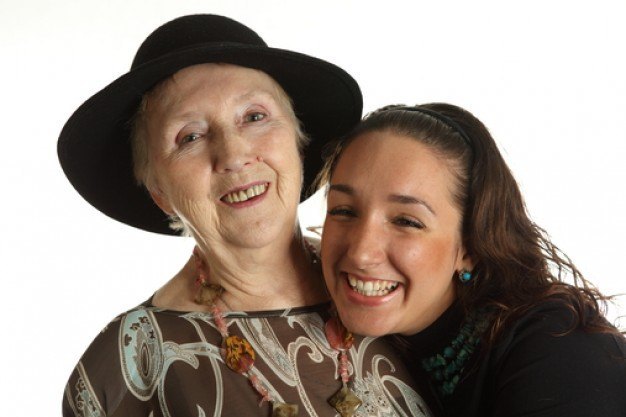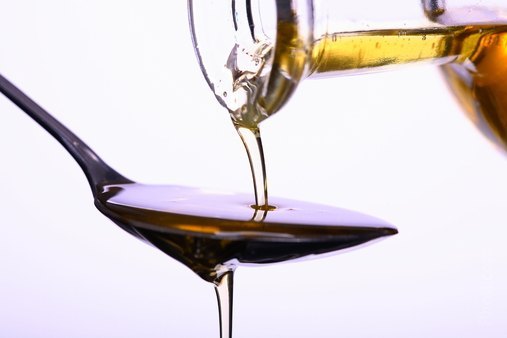Health
Olive oil is one of the oldest vegetable fats. Since five millennia the many civilizations that have been developed around the Mediterranean have kept the olive oil as one of the constitutive elements of their respective cultures, cultivating olives in the Iberian Peninsula from the 11th century BC.
Today is one of the pillars of the Mediterranean diet, and is also known as "liquid gold" because, besides being gratifying for the palate, in recent decades several studies have proven its nutritional qualities and its numerous health benefits.
These benefits can include:
It helps to lower cholesterol and prevent cardiovascular disease
Thanks to its content of monounsaturated fatty acids, it helps to reduce the levels of bad cholesterol (LDL); at the same time, phyto-sterols increases the good cholesterol (HDL). This improves blood circulation and blood pressure decreases.
It prevents aging
Thanks to the large amount of vitamin E and polyphenols -a natural antioxidant- containing, olive oil is a very important antioxidant that delays aging, protects against cellular oxidative stress, improves cognitive functions and helps to prevent degenerative diseases such as Alzheimer's.
It preserves the bones
It contributes to a proper bone mineralization and its development, prevents the loss of bone density and prevents osteoporosis. For this reason, it's very important that it is present in the diet of children during growth, and also in adulthood to limit the loss of calcium.
It protects the heart
The antioxidant components of extra virgin olive oil as Essence Suprem inhibit the formation of atherosclerotic plaque in the blood vessels, preventing obstruction of the arteries (atherosclerosis) and protecting the heart.
Enhances digestive function and reduces gastric acid secretion, protecting against gastrointestinal diseases.
It helps to control pressure
To control hypertension experts recommend a diet rich in fruits and vegetables. A major derivative? Olive oil. A study published by the American Journal of Clinical Nutrition showed that its consumption has a direct impact on the control of both systolic as diastolic pressure.
Improve the PH of the body increasing it, due to better absorption of calcium and magnesium.
Prevents constipation
Improves digestion of nutrients by stimulating the secretion of bile from the gallbladder, which helps prevent slow or heavy digestion of fats.
It controls diabetes
Studies published by the American Diabetes Association show that olive oil consumption regulates pancreatic insulin production, controlling glucose levels and delay treatment with medications in patients newly diagnosed with diabetes.
It fights breast cancer
Other benefits of olive oil came to light in a study by the Autonomous University of Barcelona, ensuring that oleic acid and a group of antioxidants contained in the oil decrease the activity of the oncogene and stimulate the death of cells that form tumors in the breast. The results obtained in various scientific studies have shown a lower incidence of several types of cancer in Mediterranean countries (the main consumers of olive oil) in comparison with countries in Northern Europe and the United States. It is what happens, for example, with breast cancer, associated with consumption of saturated animal fat.
It prevents strokes
For the first time in 2011, a study in France found that people who consumed olive oil frequently, i.e., in stews, salads and even to add flavor to food, had a risk 41% lower of suffering a stroke.
It has anti-inflammatory action
Oleocanthal, a natural organic component of olive oil that gives it part of their flavor, provides also anti-inflammatory properties similar to ibuprofen.
It Provides vitamins E and K
One hundred grams of extra virgin olive oil provides 96% of the recommended daily intake by the United States Agriculture Department (USDA) of vitamin E - an important antioxidant - and 50% of the recommended daily intake of vitamin K, which helps increase bone density and also plays an important role in the prevention of Alzheimer's disease by preventing wear of neurons in the brain.

The reality of these benefits is supported by numerous scientific studies, conducted mainly in Spain and United States, which demonstrate, under scientific rigor, beneficial results of the extra virgin olive oil for human health, taking into account that it is not a drug treatment, but a method to prevent disease through diet. Consider some of these studies:
1. Researchers of the Hospital Universitario Reina Sofia of Cordoba have conducted a study to determine the influence of micronutrients of some fats on cardiovascular diseases, diabetes or cancer, and if their intake can modify the inflammatory process in people healthy. Results confirmed the benefits of this variety of oil for health and show that their intake down modulates inflammatory mediators in people healthy. The study suggests the possibility of some micronutrients to act as a direct effect, similar to the anti-inflammatory drugs. The American Journal of Clinical Nutritionjournals, Journal of Clinical Endocrinology and Metabolism and Atherosclerosis have echoed from the results of this work.
For Dr. Pablo Pérez Martínez, Co-Director of the study, "the fundamental characteristic of olive oil is its richness in antioxidants, that makes it a unique fat. It is important to clarify what is the added value of its components, since it is the only way to establish that a healthy diet should have the olive oil as a basic fat."
Among the beneficial effects of the consumption of olive oil in the Mediterranean diet, Perez Martinez points out that "reduces the harmful cholesterol (LDL), lowers blood pressure, improves diabetes control and reduces the tendency to cause thrombosis. In recent years, there are other oils for human nutrition with a similar fatty composition, but they have a fundamental difference with that from the olive, and is that "the latter is a natural juice, which contains no fatty microcomponents, of high biological interest, which include vitamin E, carotene, squalene, chlorophyll and, in particular, the phenolic compounds".
In addition, says the researcher, recent studies are defining that there are some benefits that depend on or are enhanced with the intake of olive oil rich in micro-components, as in the case of extra virgin olive oil and its anti-inflammatory properties, which would be a new added value, along with other beneficial effects already known.
2. A study by the Monell Chemical Senses Center, associated with the University of Pennsylvania (United States), led by biologist Gary Beauchamp, designated in the prestigious journal Nature that "some of the healthy effects associated with the Mediterranean diet might be due to the natural activity anti‑COX of Oleocanthal found in high quality olive oils".
The research team has found in extra virgin olive oil a compound that have been dubbed Oleocanthal, which, according to their research, inhibits the activity of the enzymes cyclo-oxygenase (COX), a pharmacological action in which is based the action of nonsteroidal anti-inflammatory drugs and analgesics, such as ibuprofen. According to the study, 50 grams of extra virgin olive oil contain up to 200 micrograms of Oleocanthal, equivalent to 10% of the recommended dose of ibuprofen for adult pain relief.
3. Dr. Sánchez‑Albornoz, specialist in Dietetics and nutrition of lnstimed Clinical indicates that "extra virgin olive oil is rich in vitamins A, D, K and especially in E, very beneficial for tissues, as well as protect against certain tumors, heart disease and arteriosclerosis". "Also their antioxidant power enhances the quality of the organism, that everything works correctly, prevents aging... Antioxidants are the source of eternal youth."
4. Although still more studies that materialize the anti-cancer power of olive oil are required, some scientists are already pointing in this direction in their jobs. For example, Spanish experts in Oncology showed that oleic acid is an important asset when it comes to slow down the activity of a gene involved in 20% of more dangerous breast tumors. The statistics also insist that relationship: in Spain, where olive oil is the base of the diet, breast and colon cancers are 28% and 42% less frequent with respect to the average of the European Union. Dr. Sánchez‑Albornoz believes that this is due to the healthy effects of virgin olive oil. "As it contributes to improving the health status of, indirectly, may be anticarcinogenic. For example, it fights constipation and improves digestion, serving to fight colon cancer." But, as with virtually all foodstuffs, there is to consume it properly.
5. the Eurolive project, in 2006, provided physicians from all over Europe the necessary evidence so that they could recommend the oil ‑particularly Virgin extra‑ to patients and the public healthy in general. Directed and coordinated by the team of Maria Isabel Covas, of the Municipal Institute of Medfical Research (IMIM) of Hospital del Mar, in Barcelona, the project was carried out between 2003 and 2005 in five European countries (Spain, Denmark, Finland, Italy and Germany) and consisted of 200 healthy volunteers ingested 25 milliliters per day of three similar types of olive oil, but with different content in polyphenols (or natural molecules that contain antioxidants). The results showed that a higher content of these components had a greater increase of the so-called good cholesterol, and also a lower oxidation of lipids involved in the development of atherosclerosis and, consequently, myocardial infarction. The study has been a key piece for the European Food Safety Authority (EFSA) (a European food safety agency) issued a recommendation of health about the benefits of the consumption of olive oil rich in polyphenols, i.e., the Virgin. Covas emphasizes this contribution, since the EFSA in its eleven years of existence, has allowed very few recommendations of this type for food.
6. "Aging is associated with a proinflammatory state, and these processes are characterized by the production of certain proteins," according to José Manuel Villalba, form Department of Cell Biology, Physiology and Immunology of the University of Córdoba. Villalba and her team of researchers found that consumption of virgin olive oil reduces the levels of many of these proteins, indicating a better anti-inflammatory state and, therefore, a better and more healthy longevity. "On the other hand ‑adds the scientific‑, aging is also associated with a situation of increased oxidative stress of cells, which, again, is due to the production of a set of proteins. "As well: the consumption of Virgin olive oil reduces the presence of these proteins through their antioxidant effects". To understand it in another way, the olive juice incorporated into our diet balances oxidizing agents with our antioxidant defenses. It is what is known as a healthy balance.
7. A study led by Javier Menéndez, of the Institute of Oncology (ICO) in Girona, has been a pioneer in establishing the hypothesis that monounsaturated fatty acid majority in extra virgin olive oil, i.e., oleic, "is capable of exercising their alleged actions healthy to regulate the expression of genes directly involved in the origin and development of certain tumors' ‑mainly that of mammary‑, explains the scientist. In this sense, the main finding of the Group was to observe that this acid is capable of suppressing "the expression of one of the human oncogenes or genes responsible for the transformation of a normal cell into a malignant". Javier Menéndez remarks that it must be "taken with caution", the results of these studies conducted under control in laboratories. But what has been demonstrated with them is the supposed beneficial effect of some of the components of the olive oil in strictly molecular terms.




